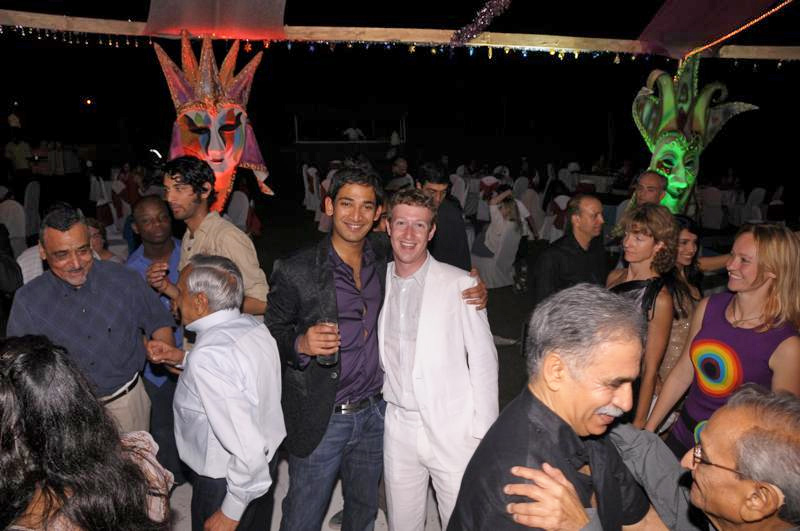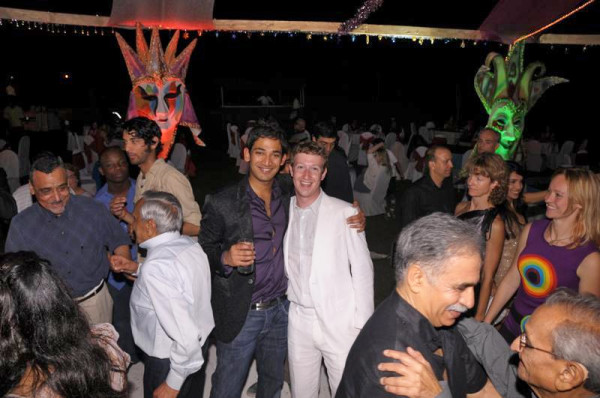
 We Owe it to India
We Owe it to India
“If you really have a mission of connecting every person in the world, you can’t do that without helping to connect everyone in India… We take that very seriously… There are also about a billion people in India without Internet access, and that needs to change.”
Despite being one of the countries at the forefront of Information Technology, a large percentage of India’s population still has no access to the internet. Now Facebook co-founder CEO Mark Zuckerberg has made it his mission to get that percentage connected to the internet. He considers it a moral obligation to have as many people in developing nations connected to the internet as possible. Is Mark Zuckerberg’s cries of ‘moral obligation’ just a marketing ploy for Facebook to expand into more countries?
“We all have a moral responsibility to look out for people who don’t have the Internet, and make sure that the rules that benefit us, don’t get twisted for people who don’t have a voice.”
— Mark Zuckerberg
Calling this goal of giving internet access to millions of poor people of developing nations such as India a ‘moral obligation’ has the makings of a massive PR stunt for Facebook and its partners. As CEO of a major Social Media and Information Technology company, Mark is going full steam ahead on promoting his company through this seemingly noble mission of bringing the internet to the poor. Internet.org is the platform that will make this goal possible by taking a chunk of the internet, downsizing it and putting it in one place to be accessed by places with very low bandwidths and devices with limited internet capability.
But to a large percentage of already connected people, this is simply Facebook’s intent on continued expansion to a large untapped user base. It’s a very strategic move on a business perspective where Facebook and Google are racing with each other to make it happen. To some people, it reeks of exploitation of the poor by big business. Give them a taste of the internet and they’ll want more, which is essentially the goal of Internet.org. If individuals and small businesses find the services and information within Internet.Org to be useful, they will then endeavor to invest on the real internet or convince their governments to give them real internet access. But that is business as usual. When there’s no more room to expand on the upper strata, you go lower and grab what you can from there. But hey, not-doing-so-well folks get to use Facebook on older devices and poor 3G connections.
Or maybe it’s the way around. That Mark Zuckerberg et al are really on a mission to give the internet to the poor. That they are sorry for India’s poor and those of other developing nations that they don’t experience the benefits of the internet such as access to information, better education, updated news and weather and better communications. That expansion is merely a positive by-product of such a venture.
If you base Mark’s real character to the way he’s portrayed in The Social Network, then he’s all for expansion. He wants to see if his move will stick and reap all the benefits later and not mind what others think. Aside from being an expansionistic goal, there’s the question of net neutrality. The goal of delivering information despite the limits of infrastructure is solved through Internet.Org but the information delivered is contrary to the principles of net neutrality. That not everyone can join or pitch in lite versions of their websites to the portal. That the stuff in Internet.Org are the things that will benefit Facebook and its partners the most. This issue of net neutrality further undermines Mark’s sincerity to the cause and his moral obligation to the poor. It’s arguable though that complete adherence to net neutrality may not be possible in some territories and that for a goal like Internet.Org to work requires adherence to a few rules or guidelines. Rules that may not apply to some websites.
But some benefit of a doubt needs to be given. Sincere or not, giving internet access to those without is better than nothing at all. Wikipedia is in there, which means better information for students; Accuweather, better weather info for farmers; Facts for life, better medical information; Messenger for free messaging more. After all, even poor people could use some of the internet which includes India, some places in Africa, Asia, and South Africa. The internet will get to them sooner or later. Making it sound obligatory though just doesn’t feel right.


 We Owe it to India
We Owe it to India